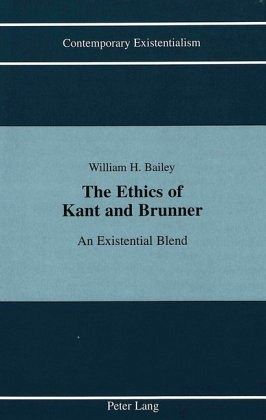Nicht lieferbar

The Ethics of Kant and Brunner
An Existential Blend
Versandkostenfrei!
Nicht lieferbar
There can be no doubt that Kant considered himself a Christian even though he deduced his principles from the purely rational. Brunner felt that philosophical ethics can never be combined with divine self-revelation. Kant's use of reason presupposes a point of identity between the divine and humanity. Because they came out of the Christian tradition, both Kant and Brunner were concerned with justice. Brunner often said that justice was each man having what is his due and Kant felt that right covers the condition under which the volunteer actions of persons are harmonized. So Christianity produ...
There can be no doubt that Kant considered himself a Christian even though he deduced his principles from the purely rational. Brunner felt that philosophical ethics can never be combined with divine self-revelation. Kant's use of reason presupposes a point of identity between the divine and humanity. Because they came out of the Christian tradition, both Kant and Brunner were concerned with justice. Brunner often said that justice was each man having what is his due and Kant felt that right covers the condition under which the volunteer actions of persons are harmonized. So Christianity produces ethics.



